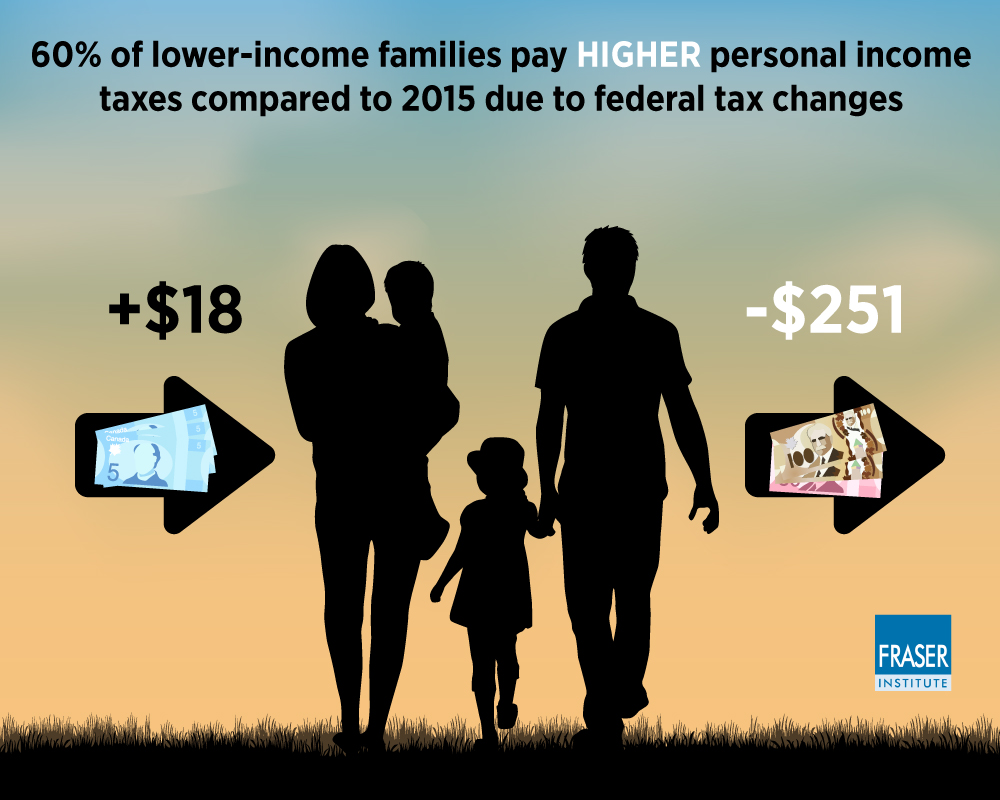A new study from the non-partisan think tank shows the burden of families with children has increased since 2015

Changes made to the federal income tax regime since 2015 claim to have helped Canada’s lower income households: but a new study challenges this.
The Fraser Institute’s senior economist Jake Fuss says that 60% of lower-income families with children face a higher federal personal income tax burden resulting from the changes.
“The federal government has repeatedly asserted personal income taxes were reduced to help alleviate financial pressure on families, when in fact, Ottawa has increased the personal income tax burden for many of those very families that can least afford it,” he said.
Fuss is co-author of Impact of Federal Income Tax Changes on Canadian Families in the Bottom 20 Percent of Earners, 2022, which analyses the cut in the second-lowest tax rate from 22% to 20.5%.
However, with the end to income splitting for couples with children under 18, and several tax credits, these combined changes more than offset the lower tax rate.
For 6 in 10 families with children under 18, earning below $70,991 in 2019 (the lowest 20% of income earners) their federal tax burden was an average of $233 higher than in 2015.
“By promoting one income tax change and downplaying others, Ottawa paints an incomplete picture of the overall impact of their tax changes, which have imposed a higher personal income tax bill on the majority of lower-income families with children,” said Fuss.




